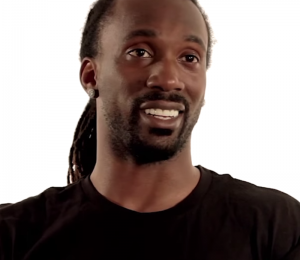
Have you ever longed for something you don’t have only to find out that someone you don’t like has gotten what you so desperately wanted?
Do you find yourself suffering when evil people continue to succeed? Are poverty, loneliness, sickness, loss, strife, or other suffering your closest friends, and yet your sinful neighbor seems to have none of them?
Or maybe the prosperity of the wicked is waiting for you when you open your computer or scroll through your phone. A woman who complains about her children announces that she’s pregnant with another, while you wait for just one positive pregnancy test. A man openly lusts after other women, yet he gets engaged. A person you know is dishonest in her work receives another promotion, while you are stuck in a job for which you’re overqualified.
You simply can’t escape the injustice of it all.
Like never before, we can see what almost anyone has in all its jealousy-inducing glory. Social media reminds us that evil still prospers, while we, the righteous, languish in our lack. Twenty-four hour cable news reminds us that evil often wins, while innocent people suffer unspeakable horrors.
We want, but we do not have. We feel like we deserve it, but it goes to someone far less deserving. We work hard for it, but it is still escapes us. All the while, we see the dishonest, the cheat, the liar, the glutton, and the sexually immoral getting what we feel is owed to us.
“This Really Isn’t Fair”
A few months ago I was confronted with my own jealousy over someone else’s victory. Social media reminded me that this person was prospering in a job he (or she) received by less than faithful work. As I read about this person’s successes, anger bubbled up in inside me boiling over to a text to my husband.
“This really isn’t fair.”
After wallowing around in my self-pity over what God was not giving me, I was confronted by the words of Psalm 73. We see evil prosper, while the righteous suffer, and we get a front row seat to the psalmist’s struggle with this injustice. Human emotion is all over the Psalms. They give us categories for thinking through our feelings — including envy.
Whom have I in heaven but you? And there is nothing on earth that I desire besides you. My flesh and my heart may fail, but God is the strength of my heart and my portion forever. (Psalm 73:25–26)
It’s a good passage, and a sweetly memorable one, but it comes after much struggle, after a lot of wrestling. It is born out of emotional pain.
This passage is the climax of the entire psalm, but a lot has to happen before he can get to that high point. The psalmist comes to see God as his portion only after he sees the abundant portion of the wicked and wonders why it’s not his, too. We all struggle at some point with comparison and jealousy. Psalm 73 shows us a better way to process the seeming injustice.
What Can You See?
The psalmist clearly is struggling with the prosperity that comes to the wicked.
- They are well fed, they have no pain (Psalm 73:4).
- They are prideful and violent with no consequences (Psalm 73:6–7).
- They speak against God and mock him (Psalm 73:9–11).
- And in all of this, their riches continue to increase (Psalm 73:12).
The wicked have it made, it seems. It often appears that Christians have it harder than non-Christians. The ones who openly mock God have more money and less problems than the faithful believers.
For example, who can forget Job, the righteous man, who suffered unspeakable horror in the loss of his family, his wealth, and his health? The Bible is full of faithful people who suffer while the wicked prosper. Psalm 73 is only one of many situations like these.
What Do You Feel?
The Psalms are poetry, which means they are meant to evoke some sort of emotion or feeling in the reader. We are not emotionally neutral to evil, sorrow, and injustice. As image bearers of God, this is not surprising, because God isn’t emotionally neutral either. The psalmist feels the reality of what his eyes see deeply.
- He feels that his efforts to remain righteous and pure are in vain (Psalm 73:13).
- He feels jealousy (Psalm 73:3).
- He feels indignation (Psalm 73:4–10).
- He feels anger.
- He feels despair (Psalm 73:14–16).
Psalm 73 is a real struggle, for a real person.
Before we get to verse 25, we must not pass over the very real feelings along the way. As emotional beings, injustice should make us feel something. But that’s not the end of it.
How Do You Respond?
Those of us who struggle with responding to life’s difficulties should be encouraged by the psalmist’s response after seeing injustice and feeling envy. He didn’t burst into praise to God immediately. He began with questioning God’s purposes (Psalm 73:1–2), he recounts how he feels over the injustice of it all (Psalm 73:3–15), and then he takes action.
After he allowed himself to struggle, he begins to see that simply wallowing in the injustice will get him nowhere. It only leads to despair. So he runs to God (Psalm 73:17). It is only here, in God’s presence, that he is able to see himself and the wicked rightly (Psalm 73:17–20).
It is only when he goes to God that he has any perspective on his circumstances. It is only when he looks away from what his eyes can see that he realizes that his envious response will only lead to more despair (Psalm 73:21–22). Left to himself, it’s a bleak picture. But in God’s presence, he can see clearly.
Good to Be Near to God
This new sight and these new feelings lead him to worship. Turning away from what was in front of him, and towards God’s global and unstoppable purposes, helped him not only to praise God, but also to put away the envy that threatened to destroy him (Psalm 73:21–22).
The psalmist ends where we must end when we are riddled with envy, jealousy, bitterness, comparison, and frustration over injustice.
But for me it is good to be near God;
I have made the Lord God my refuge,
that I may tell of all your works. (Psalm 73:28)
The nearness of the Lord is always for our good. The farther away we are from him, the easier it is to forget that he is on the throne, that he has eternal purposes that cannot be thwarted, and that we are his beloved children. Sometimes it takes great wrestling to get us to the place of seeing him as our portion, but it’s always good for us to get there again.
At first glance, there is so much to envy in our world. But this world is not our home. The final chapter has yet to be written, when we receive fullness of joy face-to-face with our King.




